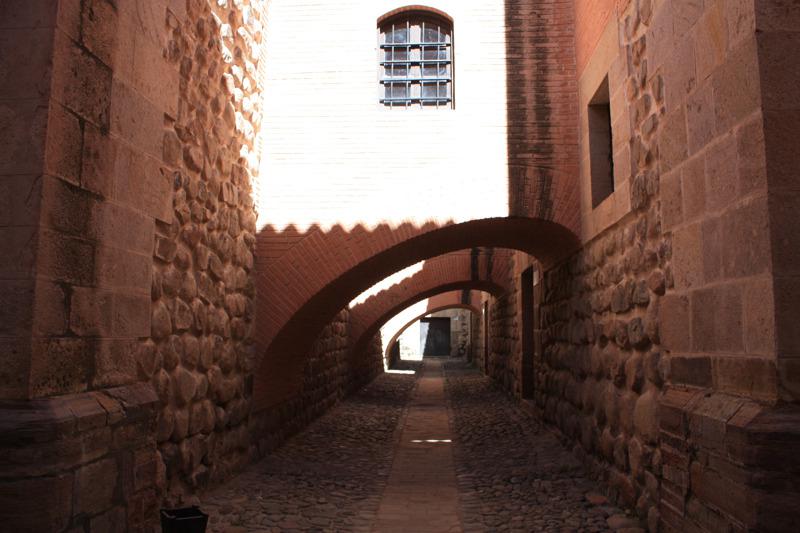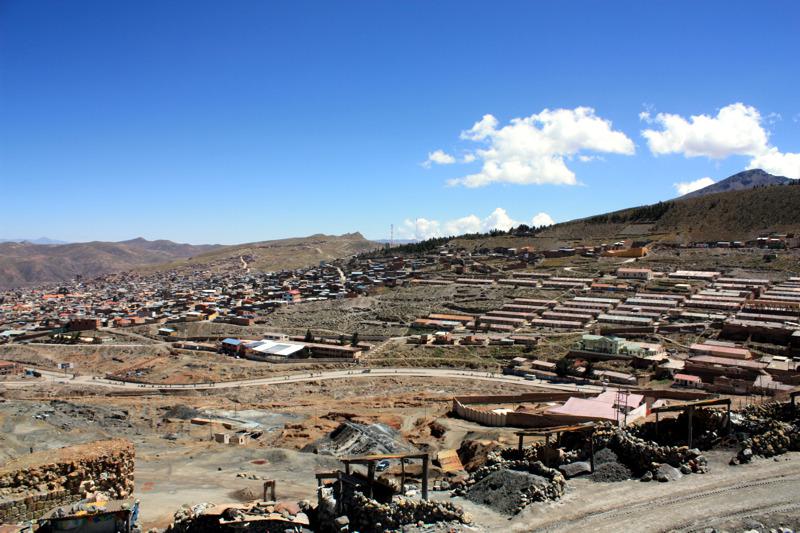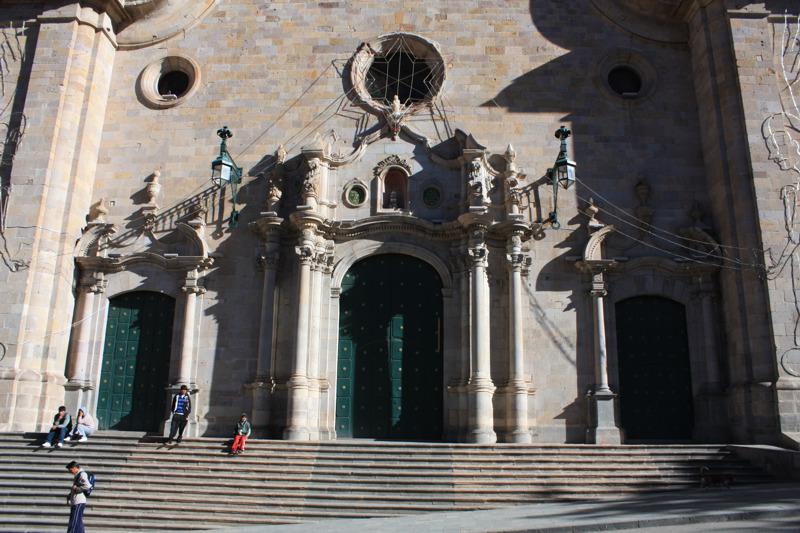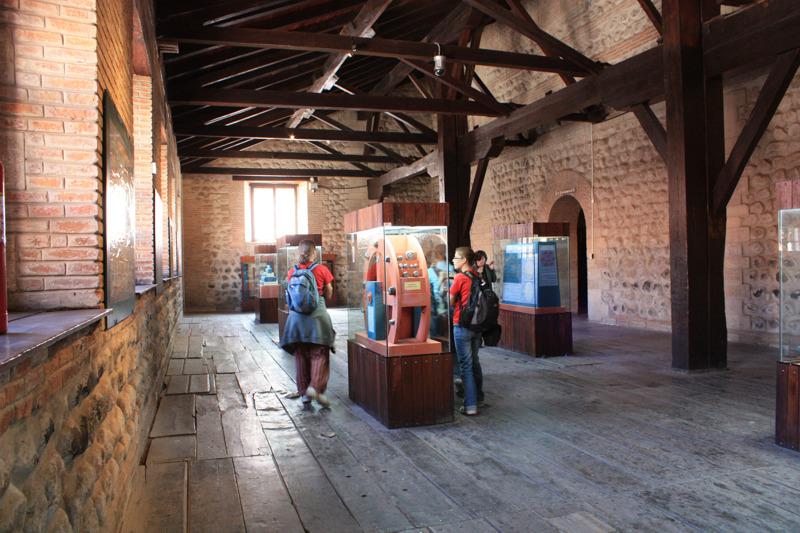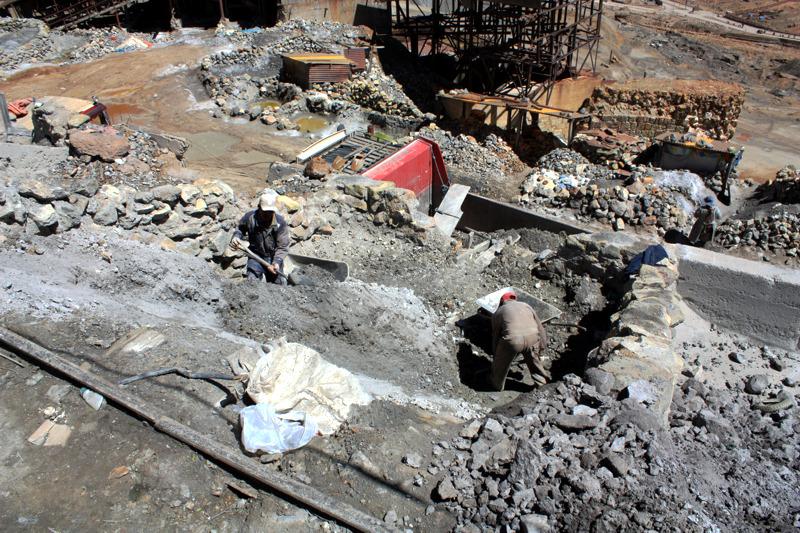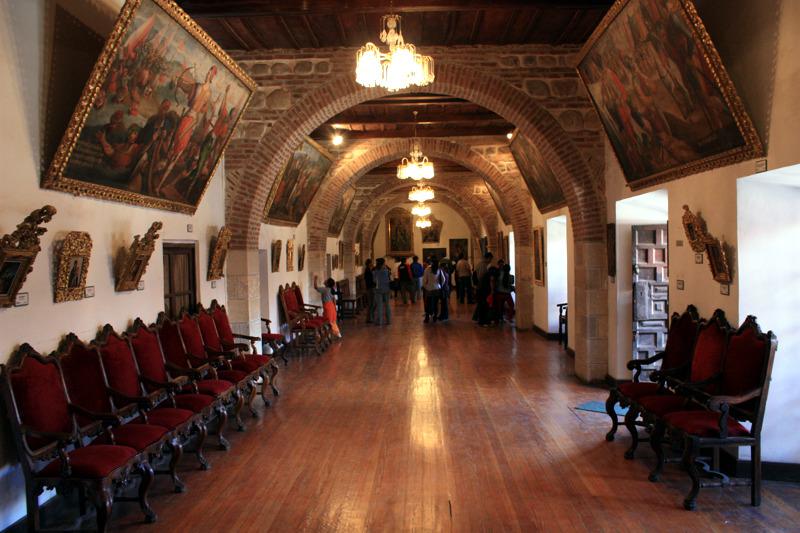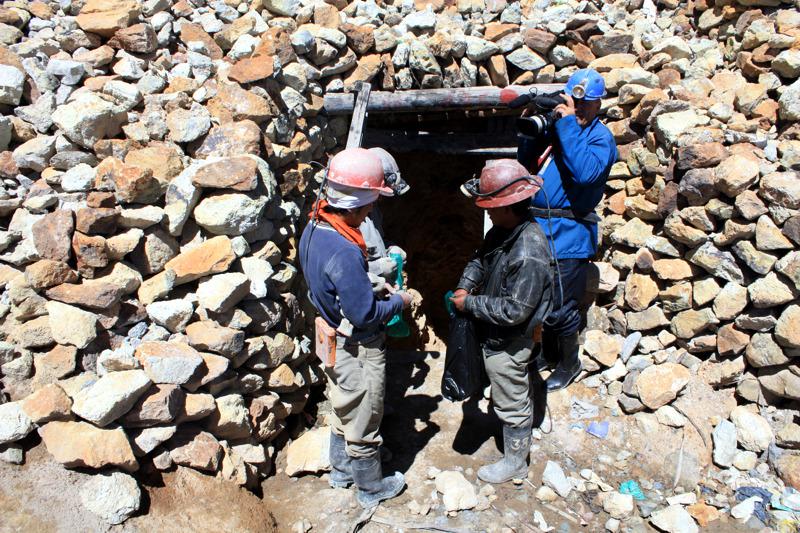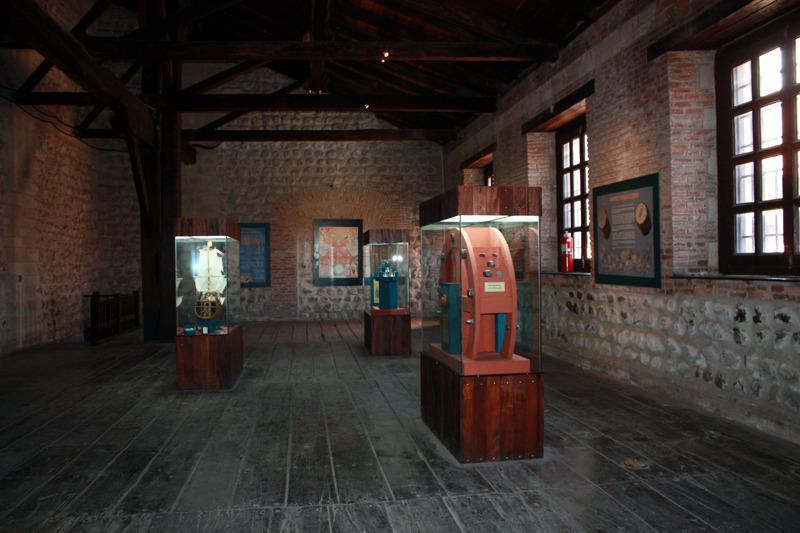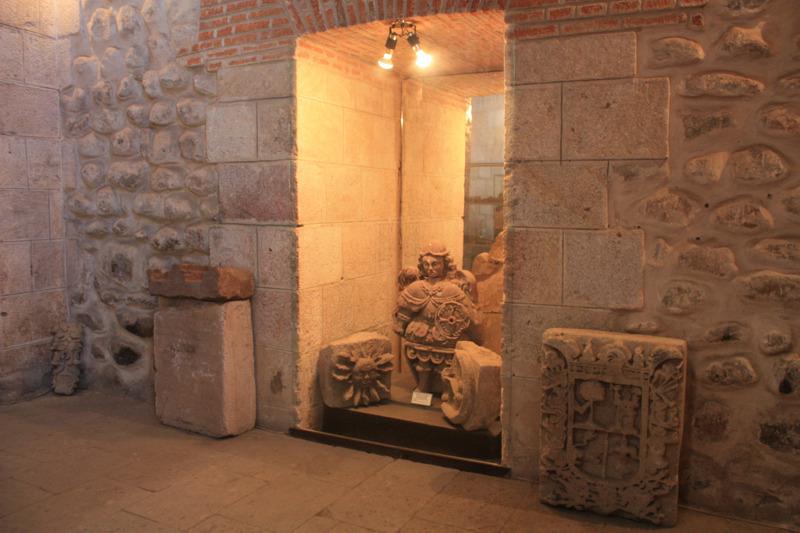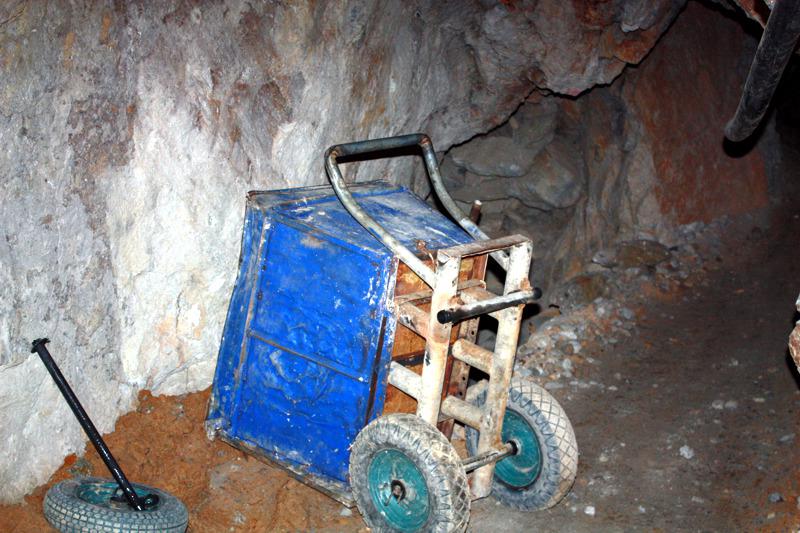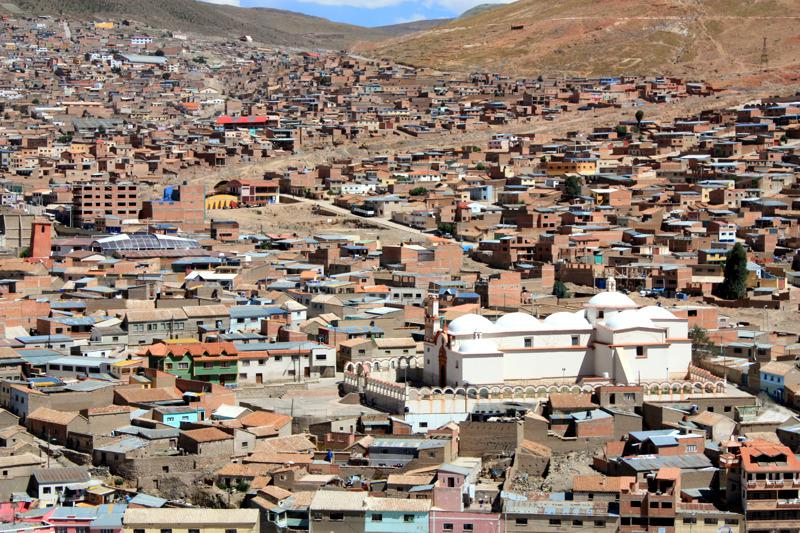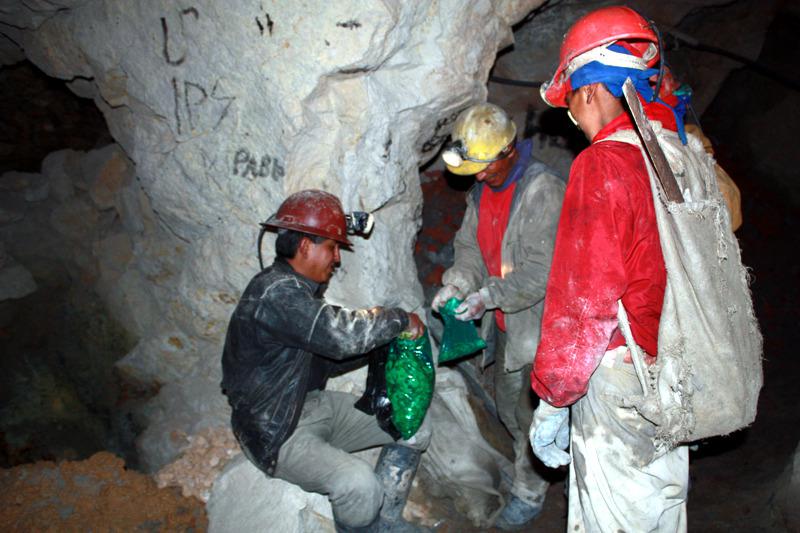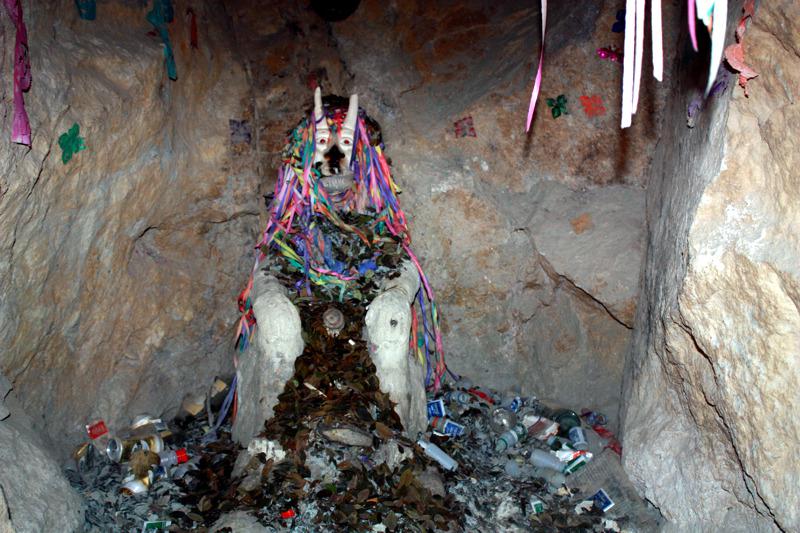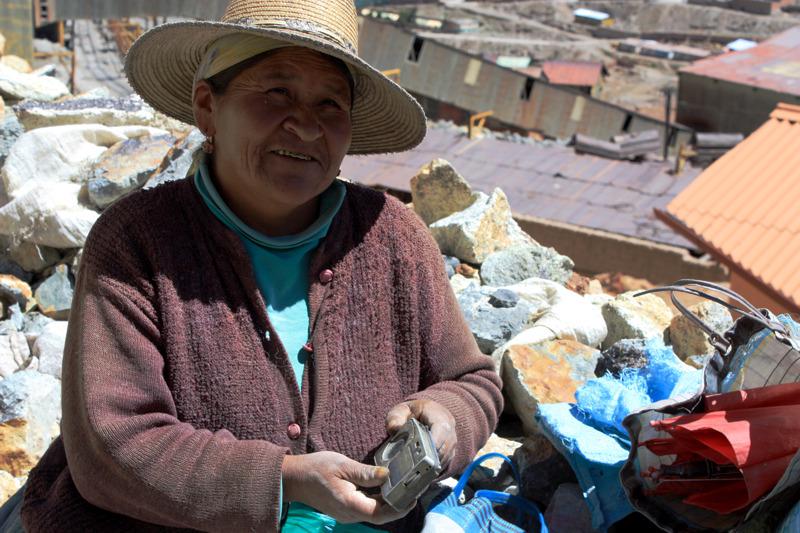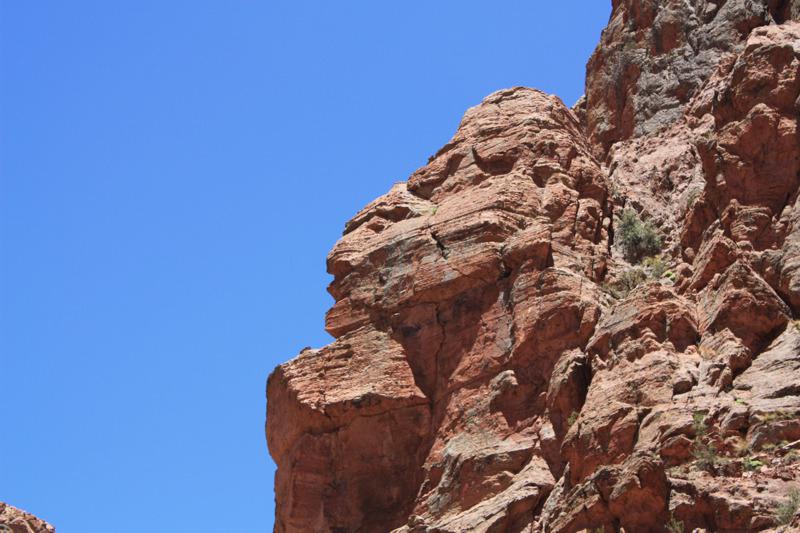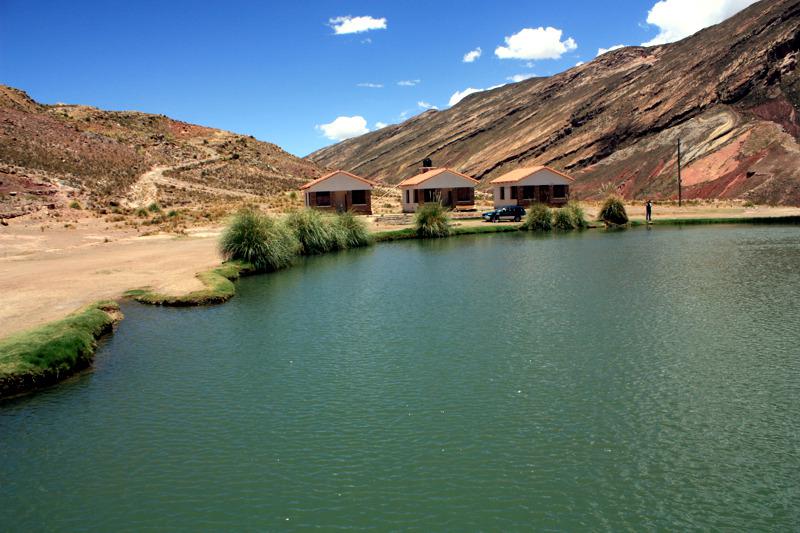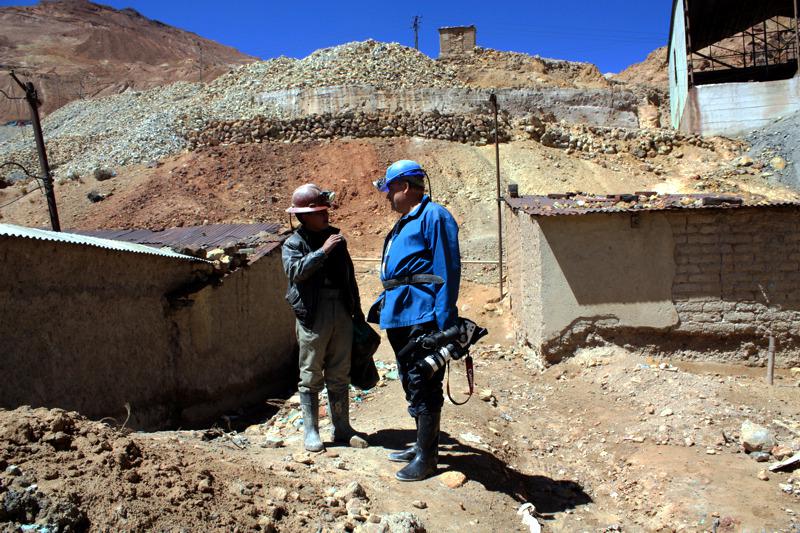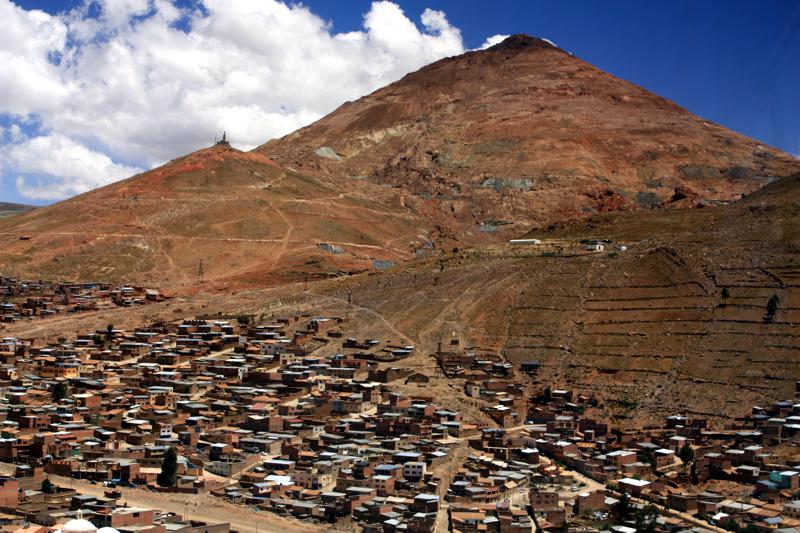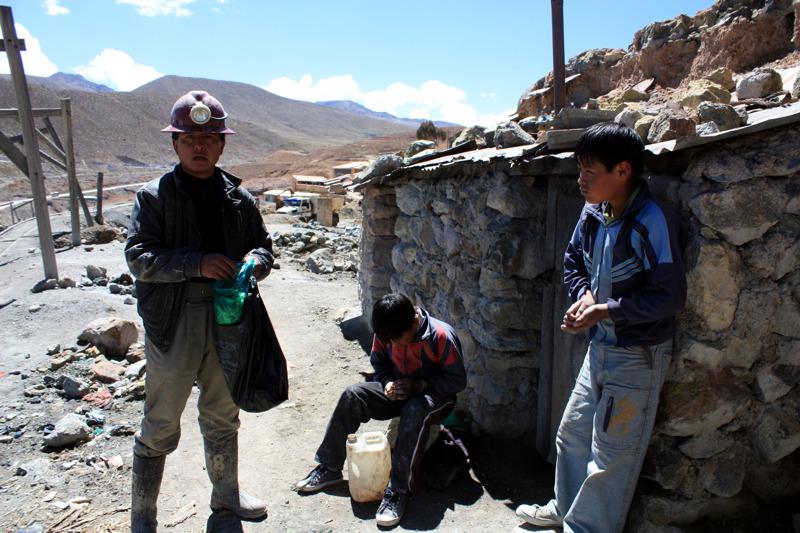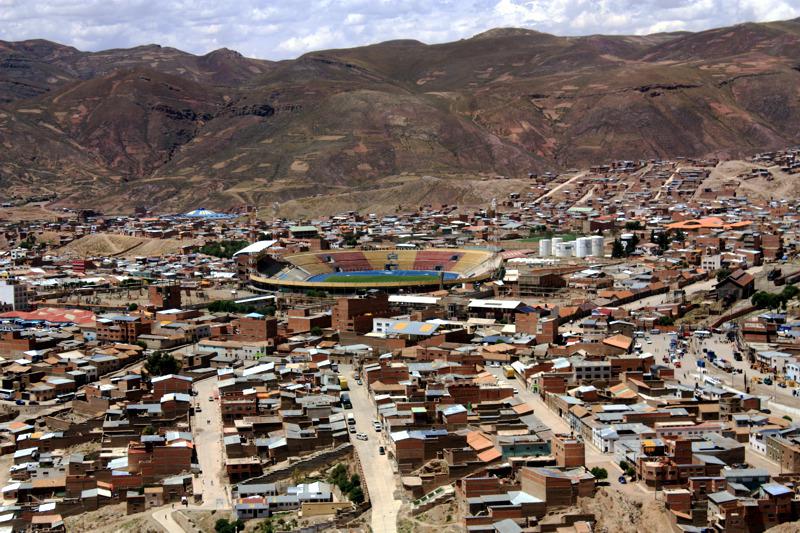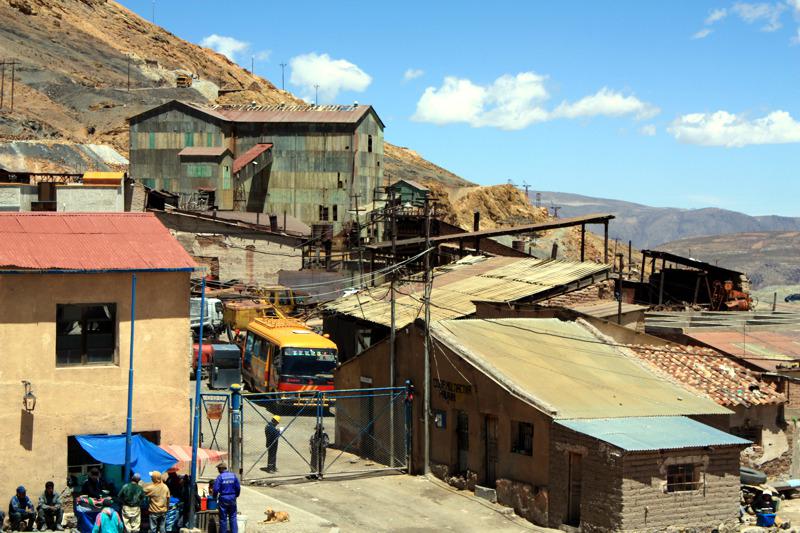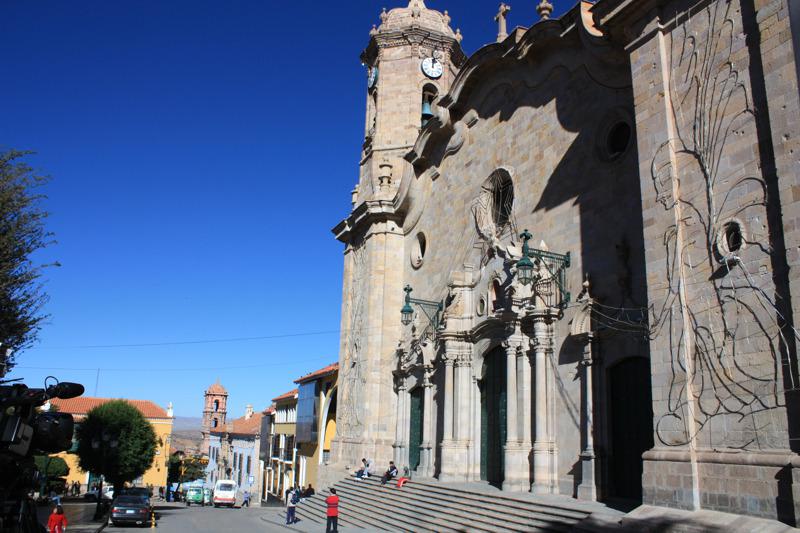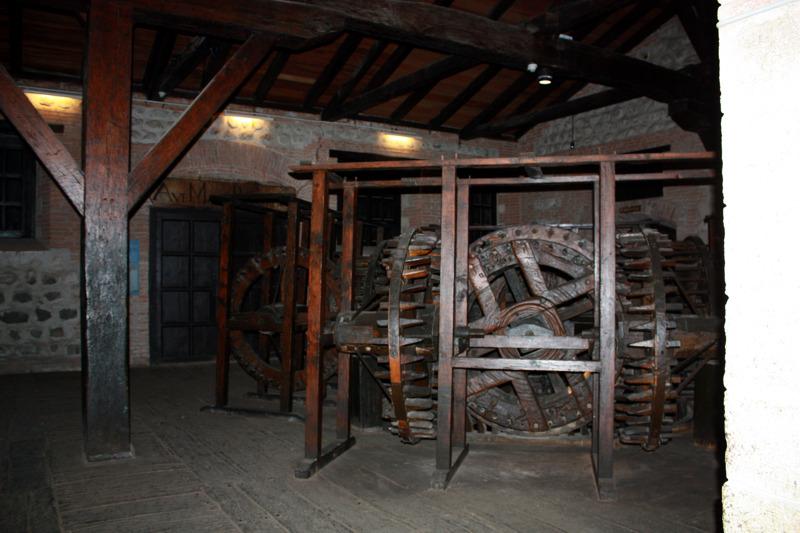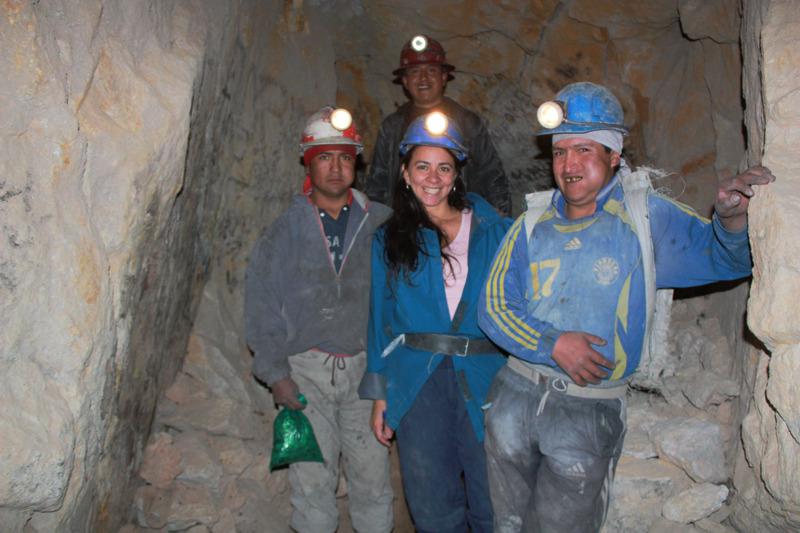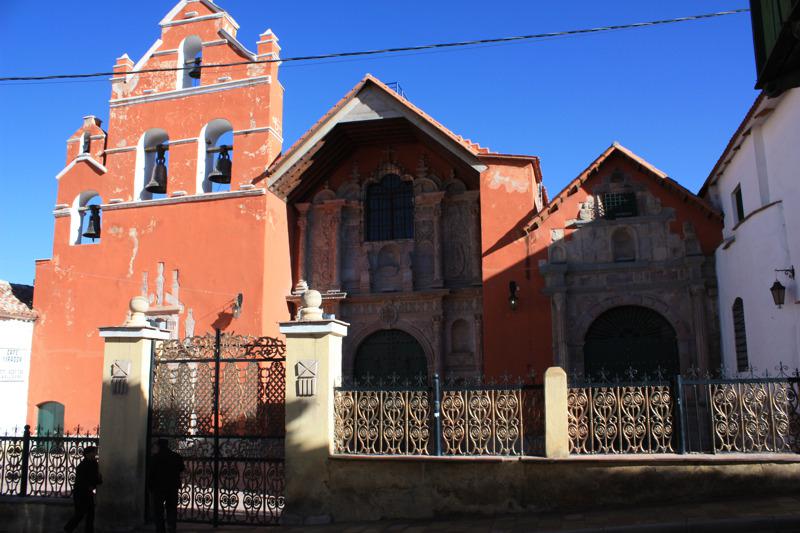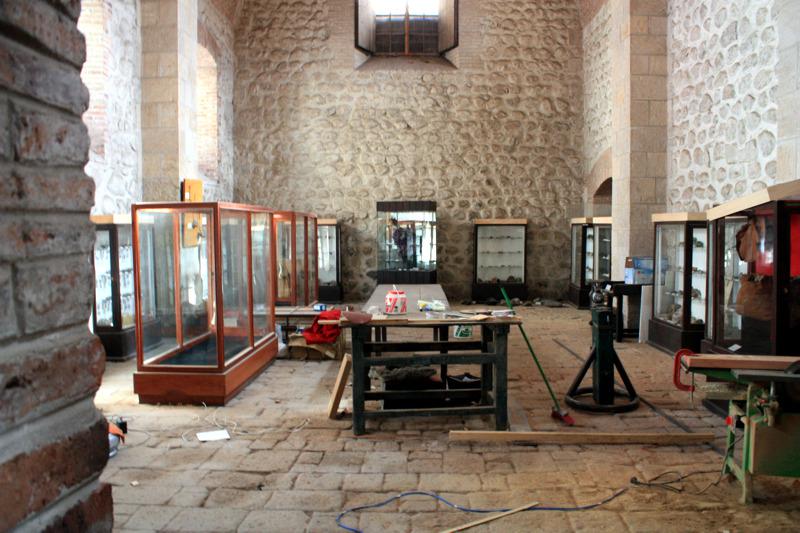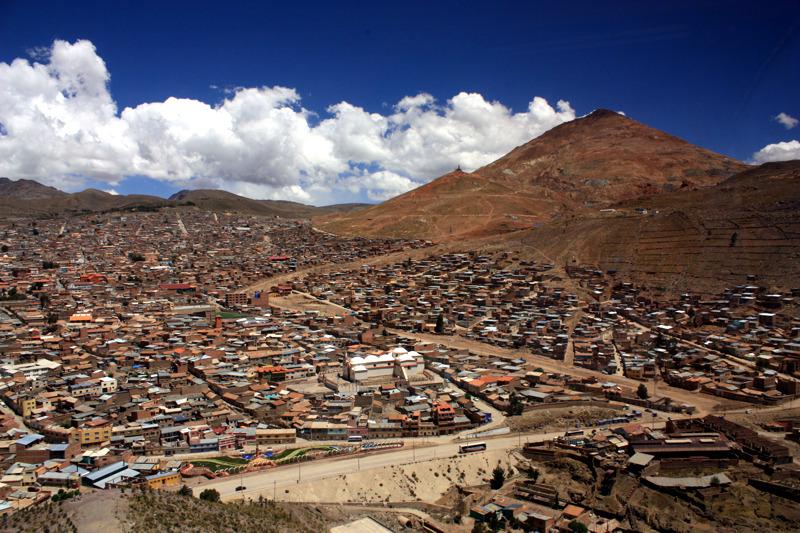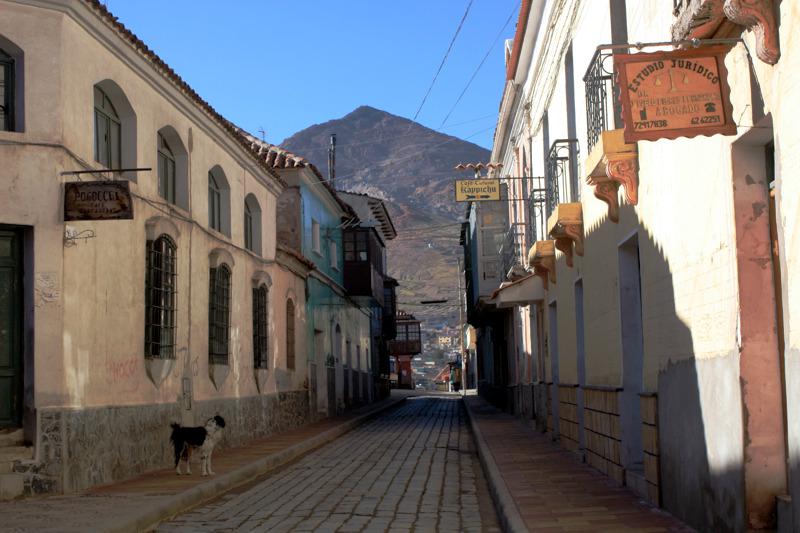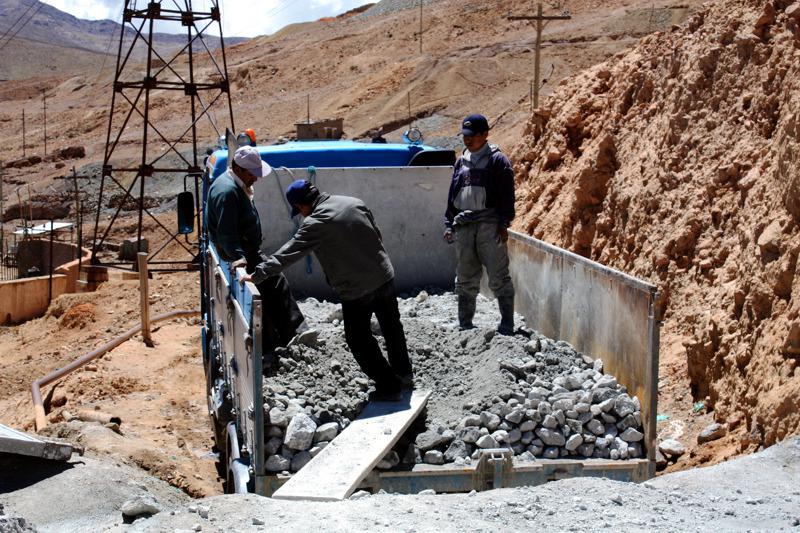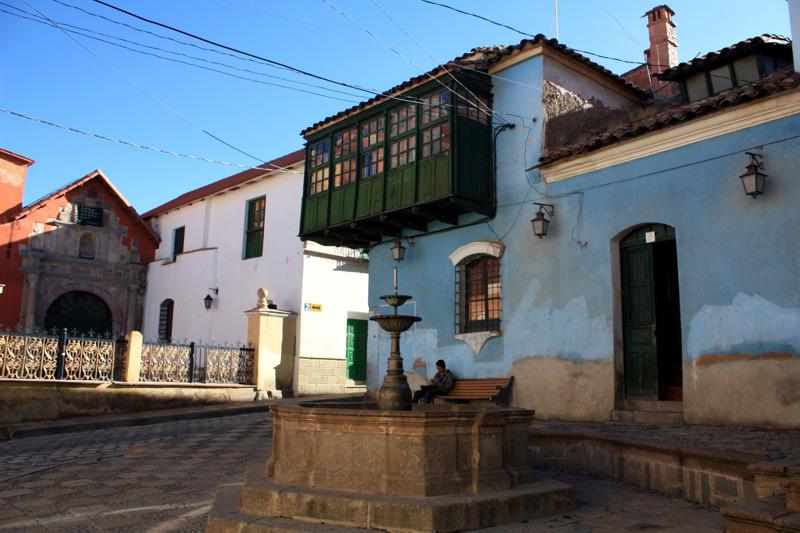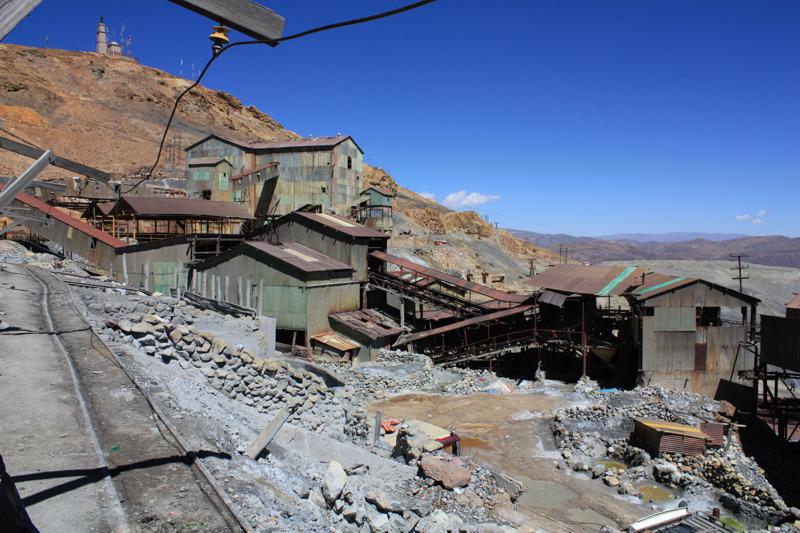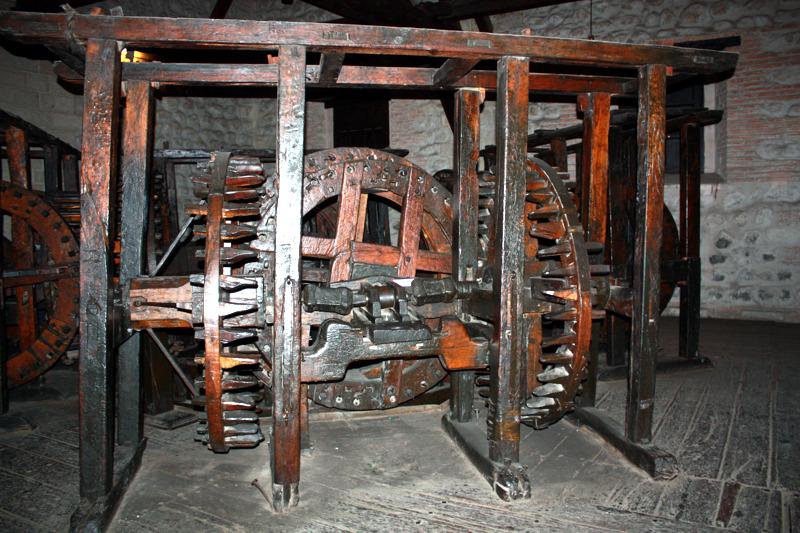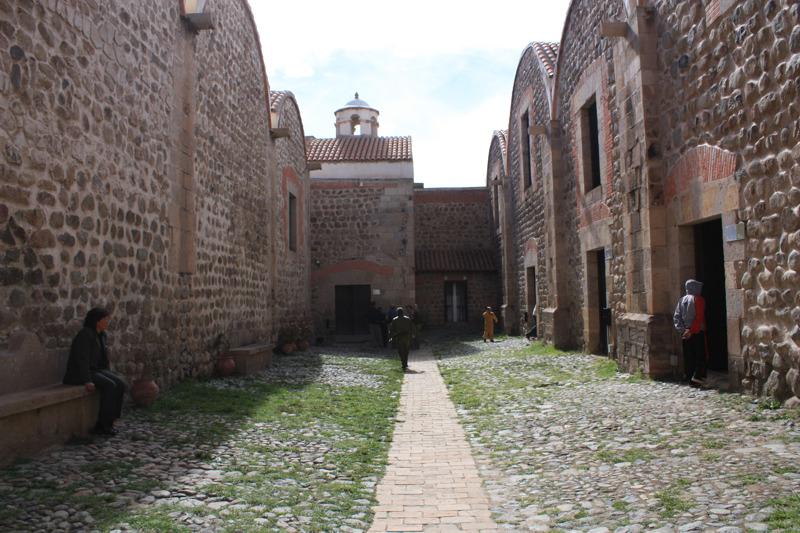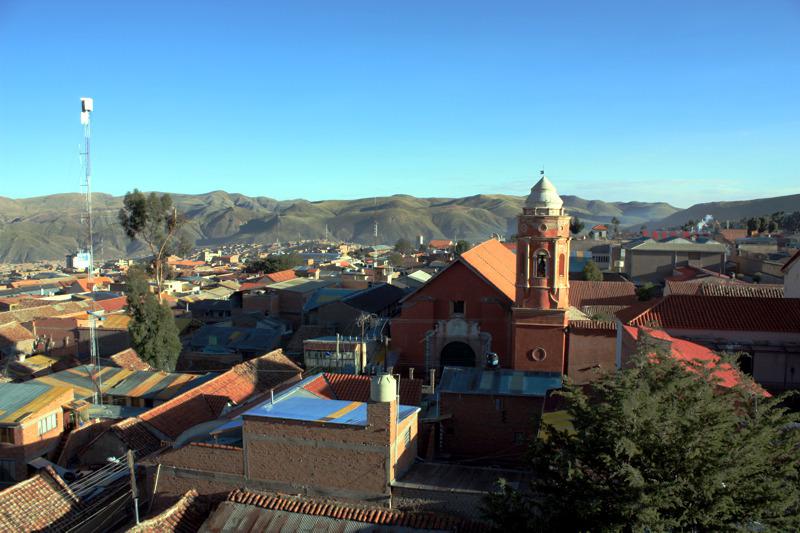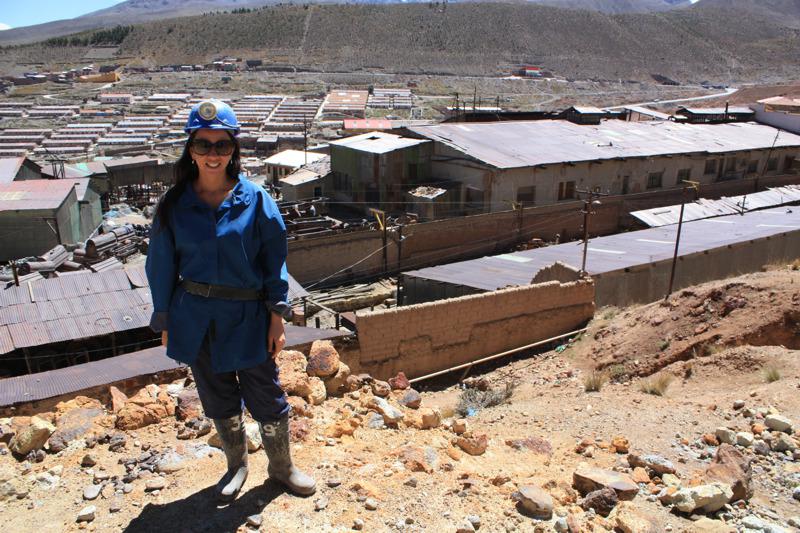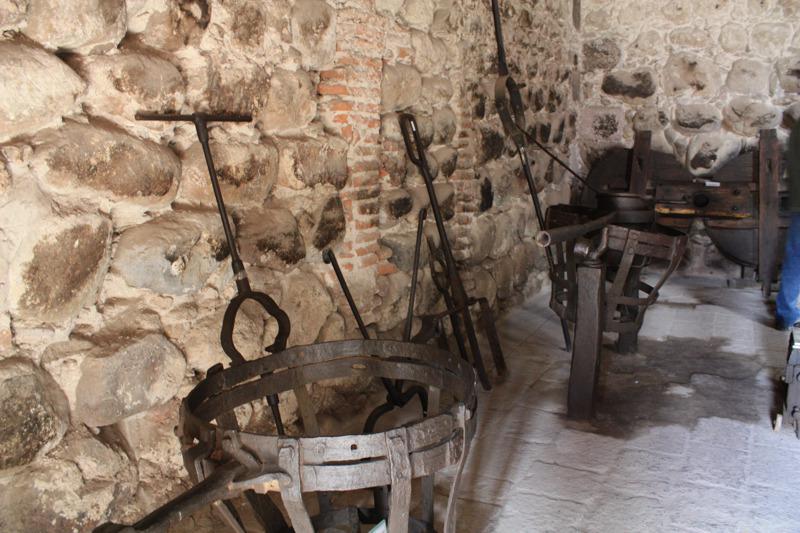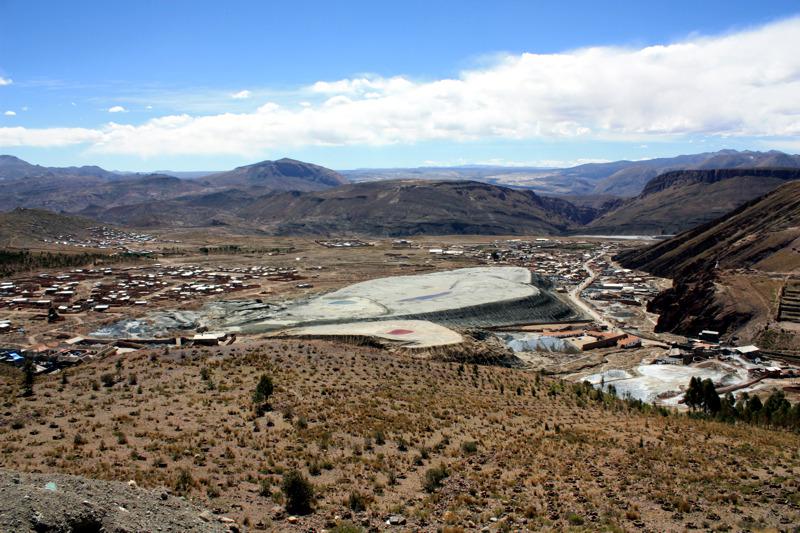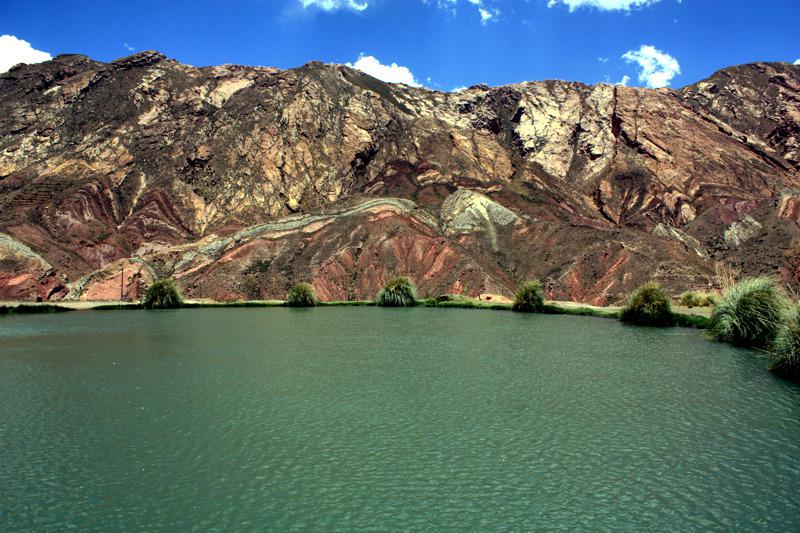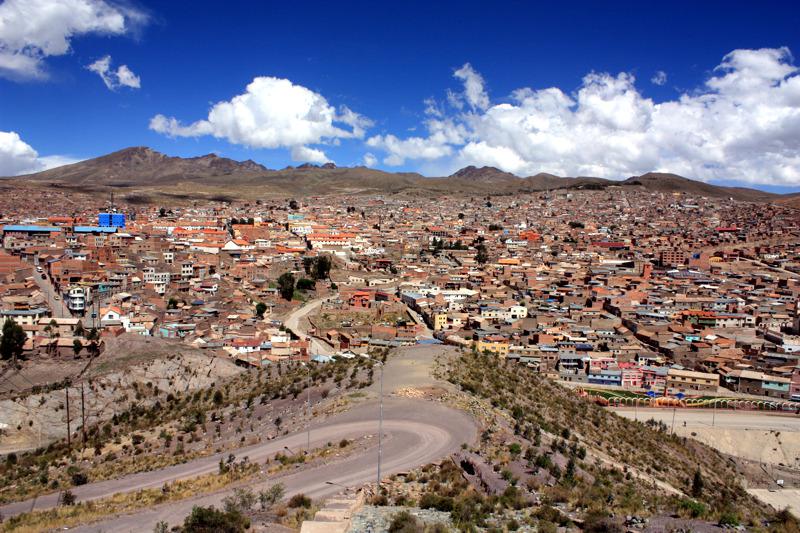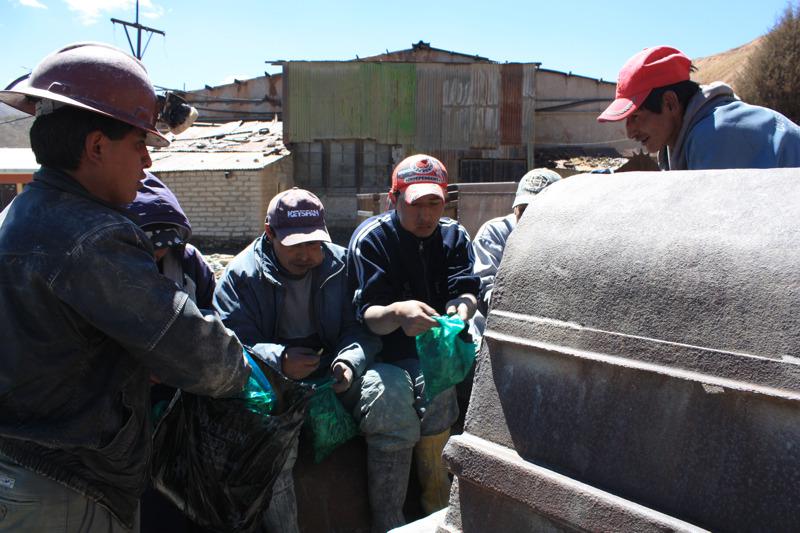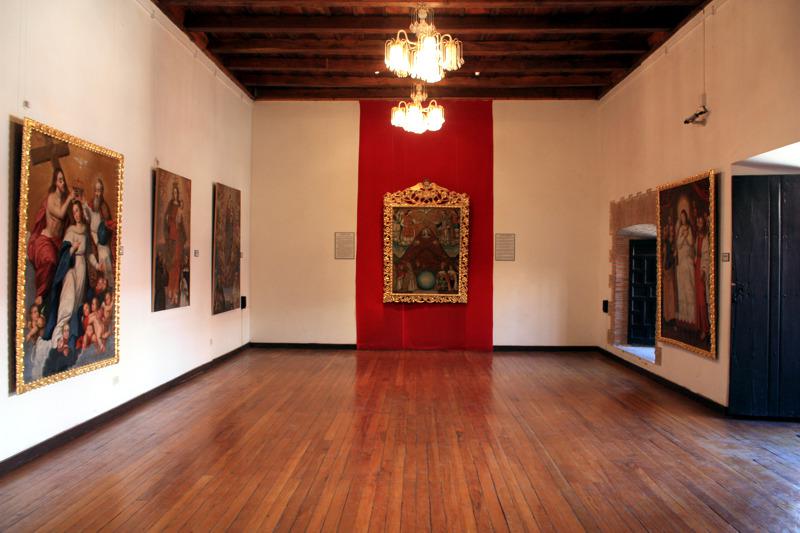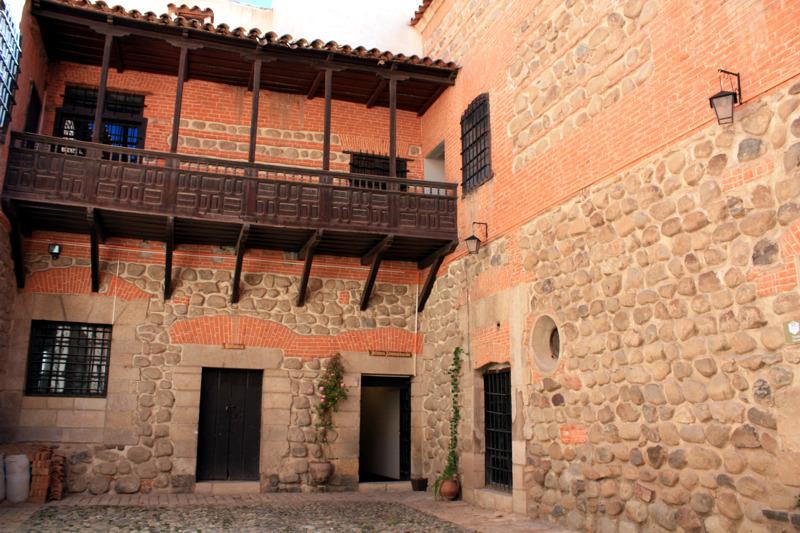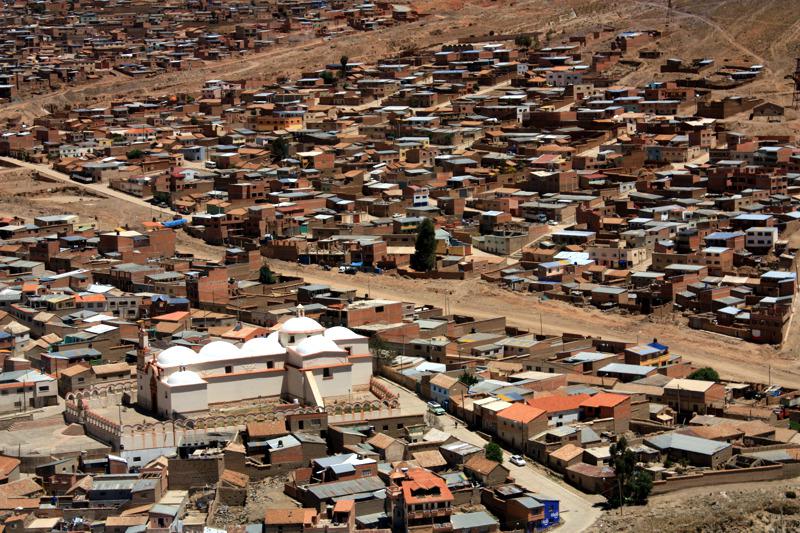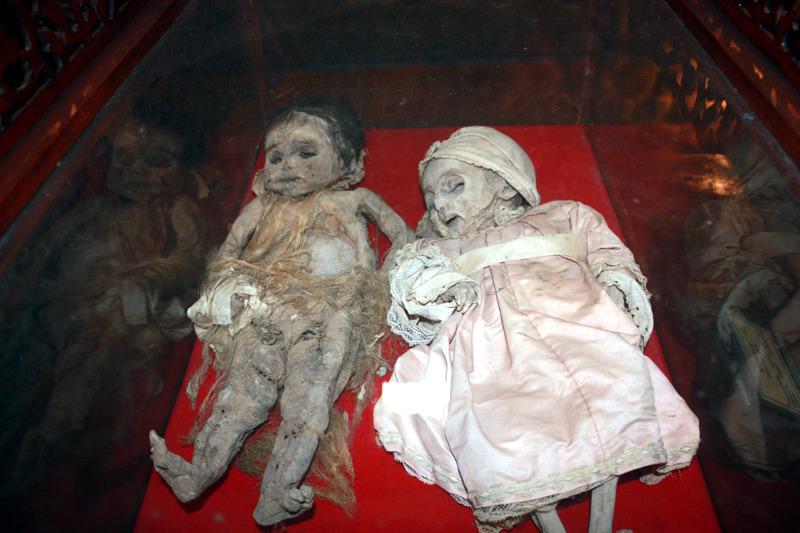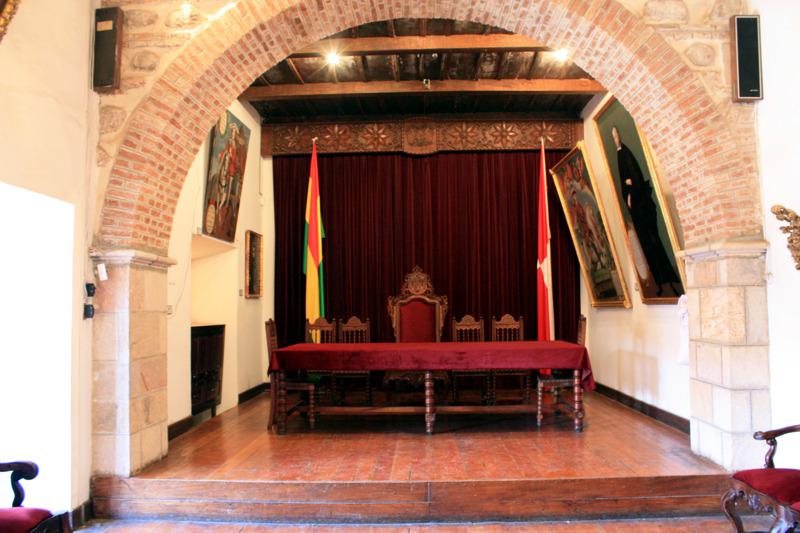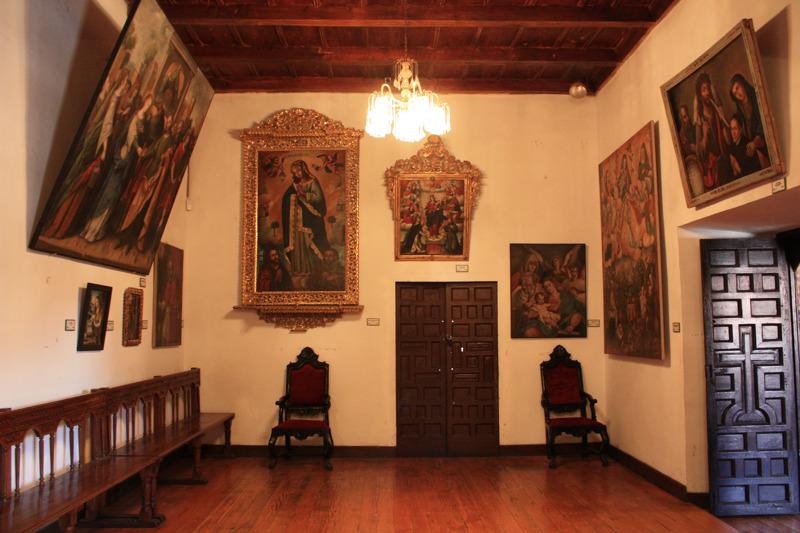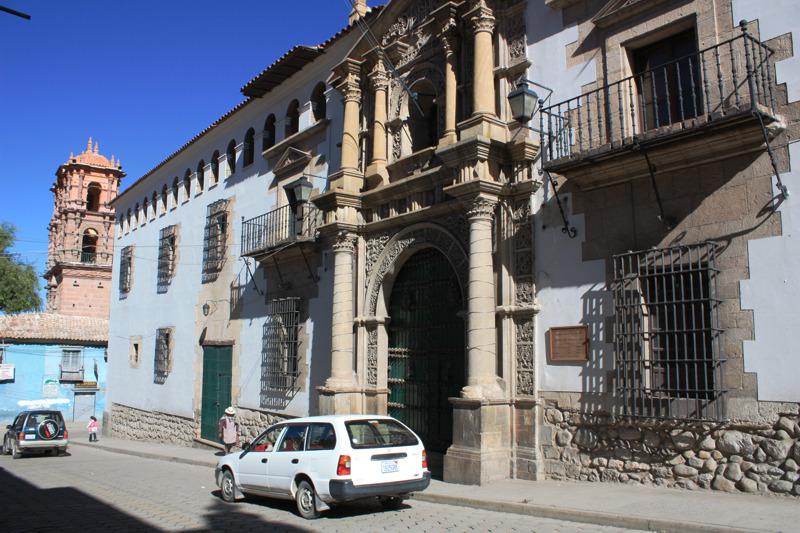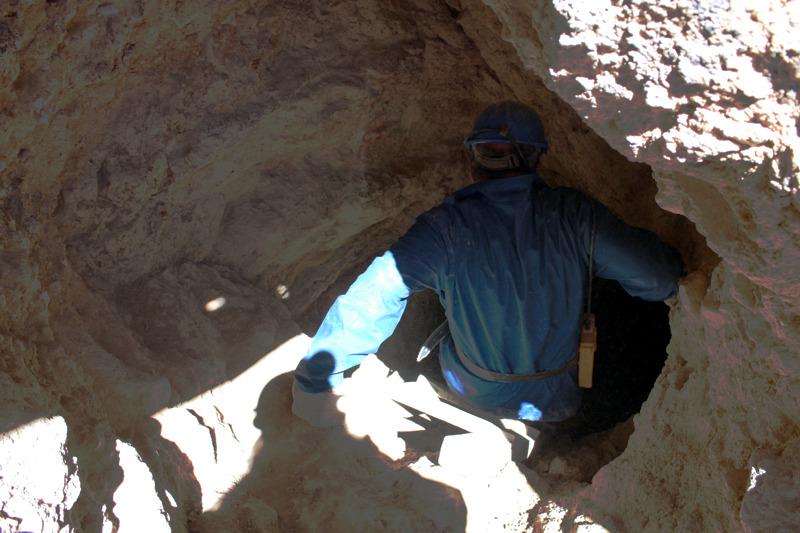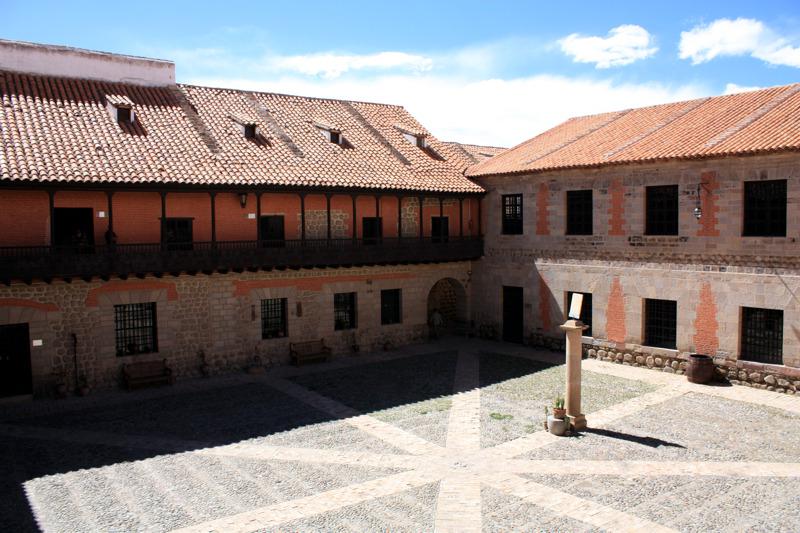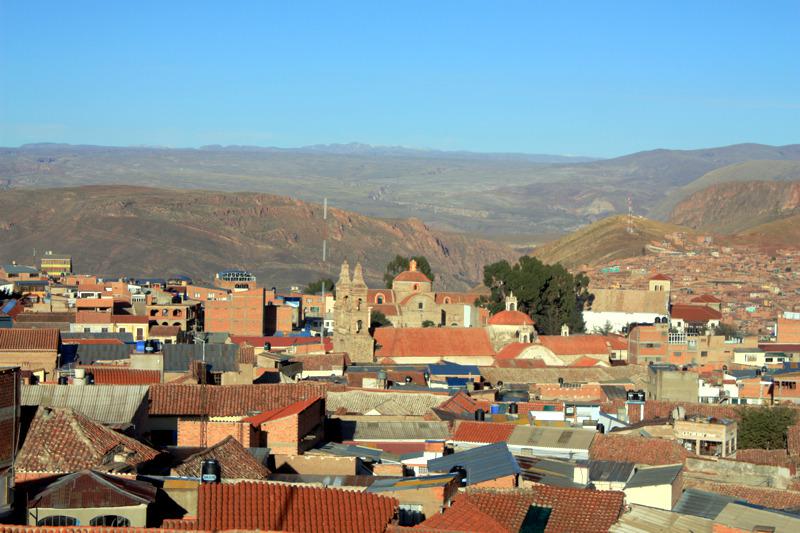Pictures of: Potosi, Bolivia
Location map
Airports
Hotels and other Accommodation
What to visit
World Nomads
The Travel Insurance with the largest coverage

The Travel Insurance with the largest coverage

Potosí
The region of Potosí is located southwest of the Republic of Bolivia, it borders to the north with the regions of Oruro and Cochabamba, to the south with the Republic of Argentina, to the east by the departments of Chuquisaca and Tarija and to the west by the Republic of Chile. The city with the same name, is on the slope of the Andes Oriental Ridge, with a height of 4000 meters being one of the highest in the world.
The whole region is characterized by the presence of geysers, fumaroles, volcanic mud, hot springs and sulfur deposits. The landscape of the Western mountain is tempered by the presence of lakes and valleys between the mountains.
This region was the pole of extraction of no less than half the silver marketed in the world (between 1581 and 1600, peak of local production, were about 3,500 tons of high quality silver) and, legend has it, until its streets were covered with noble metal. The Old Continent, owner and consumer of such wealth, exulted, and sent to the arid lands of the Andean highlands a large contingent of people seeking the almost certain and boundless fortune.
The whole region is characterized by the presence of geysers, fumaroles, volcanic mud, hot springs and sulfur deposits. The landscape of the Western mountain is tempered by the presence of lakes and valleys between the mountains.
This region was the pole of extraction of no less than half the silver marketed in the world (between 1581 and 1600, peak of local production, were about 3,500 tons of high quality silver) and, legend has it, until its streets were covered with noble metal. The Old Continent, owner and consumer of such wealth, exulted, and sent to the arid lands of the Andean highlands a large contingent of people seeking the almost certain and boundless fortune.
Tourism
There is a lot of culture to share with anyone who comes to visit the region of Potosí. Its population is mostly humble, in general, people with low level of education and low income. The Bolivian population has the face usually marked by traces of indigenous ancestry, with brown skin and dark hair and eyes.
The city Potosí is known for its vast architectural heritage. The Gothic Cathedral, the Casa da Moeda or Tomás Frias University are good examples of this heritage.
The ritual, organized by tourist agencies and local hotels, fascinates: the first step is to go to the markets at the foot of the Cerro Rico, already in the peripheral zone of Potosi, and buy some "gifts" from the miners like bags full of coca leaves, Ceibo (a 96% alcoholic beverage) and dynamite, because this explosive is sold freely, extremely cheap, on the streets of the city.
The second step is clothing: the tourist wears twill trousers, a grimy jacket and a helmet equipped with lantern, just like a miner (more than a traditional fact, the kit will guarantee the physical integrity of the visitor inside the mountain). And as a third step, enter the mine.
The city Potosí is known for its vast architectural heritage. The Gothic Cathedral, the Casa da Moeda or Tomás Frias University are good examples of this heritage.
The ritual, organized by tourist agencies and local hotels, fascinates: the first step is to go to the markets at the foot of the Cerro Rico, already in the peripheral zone of Potosi, and buy some "gifts" from the miners like bags full of coca leaves, Ceibo (a 96% alcoholic beverage) and dynamite, because this explosive is sold freely, extremely cheap, on the streets of the city.
The second step is clothing: the tourist wears twill trousers, a grimy jacket and a helmet equipped with lantern, just like a miner (more than a traditional fact, the kit will guarantee the physical integrity of the visitor inside the mountain). And as a third step, enter the mine.
Communications and electricity
Mobile phones / Mobile phones: The mobile phone network does not cover the whole country. The technologies used in Bolivia are D-AMPS, GSM, GPRS, EDGE.
Mobile operators: Entel, Tigo, NuevaTel PCS.
Internet: Many hotels have free or paid Internet connections. Only in major cities are Internet cafes.
Electricity: The electric current is 115/230 volts, 50 Hz.
Electrical outlets: The electrical outlets in Bolivia are type A and type C. Outlets of type A are similar to those used in the United States of America, while type C outlets are the same as those in Europe.
Mobile operators: Entel, Tigo, NuevaTel PCS.
Internet: Many hotels have free or paid Internet connections. Only in major cities are Internet cafes.
Electricity: The electric current is 115/230 volts, 50 Hz.
Electrical outlets: The electrical outlets in Bolivia are type A and type C. Outlets of type A are similar to those used in the United States of America, while type C outlets are the same as those in Europe.
Weather
The climate is cold in the Potosi region, except for the valley situated between the mountains where the climate is temperate.
Due to its altitude, Potosi is cold most of the year. Temperatures average 55 F (13ºC) during the summer (December to March) falling below freezing during the winter (June to August). Rain often turns into hail or snow. In the remaining 6 months of the year the average temperatures are around 40ºF (5ºC).
One of the coldest parts of Bolivia is the Salar de Uyuni, where in winter temperatures drop to -30 degrees below zero. The San Luis plateau is characterized by low rainfall rates.
Due to its altitude, Potosi is cold most of the year. Temperatures average 55 F (13ºC) during the summer (December to March) falling below freezing during the winter (June to August). Rain often turns into hail or snow. In the remaining 6 months of the year the average temperatures are around 40ºF (5ºC).
One of the coldest parts of Bolivia is the Salar de Uyuni, where in winter temperatures drop to -30 degrees below zero. The San Luis plateau is characterized by low rainfall rates.
Currency
The Bolivian
Official language
The main language spoken is Spanish, although Aymara and Quechua are also common. In addition, 34 other indigenous languages are official.
Documentation required
Documents
Passport is required by all travelers except the following:
Travelers with national identity cards issued by Argentina, Bolivia, Brazil, Chile, Colombia, Ecuador, Paraguay, Peru and Uruguay.
Travelers with a "Diplomatic Pass" issued by the United Nations.
Travelers with documents issued to refugees and persons without nationality or citizenship.
Passports or alternative documents must be valid for at least 1 year, upon arrival.
Visa
Issued by the Consulates of Bolivia (or consular section of the Embassies)
Application requirements:
One photo size of the passport.
Completed application form.
Passport valid for at least 1 year.
Fee payable in cash or check.
Return flight ticket and travel itinerary as proof of travel.
Certificate of vaccination against yellow fever may be required.
For Specific Stays Visa, other than tourism, a letter of presentation from the relevant company or institution as proof of business intentions and the dates of travel.
Copy of confirmation of hotel reservations. If staying with friends or family, an invitation letter from the host in Bolivia can be used instead of hotel reservation. The letter should be addressed to the Embassy of Bolivia, and should indicate the relationship with the applicant, the dates of the visit, as well as the address and telephone number where you will be staying.
Time needed to issue visas
1 to 2 days for nationals requiring tourist visas without special authorization.
Approximately 6 weeks for all other citizens who require a tourist visa and special authorization from the Ministry of Foreign Affairs of Bolivia.
Visas must be required by everyone, provided they travel for tourist purposes, except:
From the countries mentioned above.
Nationals of Antigua and Barbuda, Argentina, Australia, Austria, Bahamas, Belgium, Brazil, Canada, Chile, Colombia, Costa Rica, Denmark, Ecuador, Finland, France, Germany, Greece, Iceland, Israel, Italy, Japan, Luxembourg, Monaco , New Zealand, Netherlands Antilles, Netherlands, Norway, Panama, Paraguay, Peru, Philippines, Poland, Portugal, Spain, Saint Lucia, Saint Kitts and Nevis, Saint Vincent and the Grenadines, South Africa, Sweden, Switzerland, Turkey, United Kingdom United Kingdom, United States of America, Uruguay, Vatican City;
Passengers in transit (except China nationals) who continue their journey on the same or first plane within 24 hours provided they have valid one-way or return documentation and do not leave the airport.
note:
All citizens traveling on business need a Specific Purpose Visa.
Nationals who do not require a tourist visa are generally allowed to stay for a period of 30-90 days, check with the Consulates of Bolivia (or consular section of the embassies).
In addition to a visa, citizens of many countries also need special authorization; check in the Consulates of Bolivia (or consular section of the Embassies).
Passport is required by all travelers except the following:
Travelers with national identity cards issued by Argentina, Bolivia, Brazil, Chile, Colombia, Ecuador, Paraguay, Peru and Uruguay.
Travelers with a "Diplomatic Pass" issued by the United Nations.
Travelers with documents issued to refugees and persons without nationality or citizenship.
Passports or alternative documents must be valid for at least 1 year, upon arrival.
Visa
Issued by the Consulates of Bolivia (or consular section of the Embassies)
Application requirements:
One photo size of the passport.
Completed application form.
Passport valid for at least 1 year.
Fee payable in cash or check.
Return flight ticket and travel itinerary as proof of travel.
Certificate of vaccination against yellow fever may be required.
For Specific Stays Visa, other than tourism, a letter of presentation from the relevant company or institution as proof of business intentions and the dates of travel.
Copy of confirmation of hotel reservations. If staying with friends or family, an invitation letter from the host in Bolivia can be used instead of hotel reservation. The letter should be addressed to the Embassy of Bolivia, and should indicate the relationship with the applicant, the dates of the visit, as well as the address and telephone number where you will be staying.
Time needed to issue visas
1 to 2 days for nationals requiring tourist visas without special authorization.
Approximately 6 weeks for all other citizens who require a tourist visa and special authorization from the Ministry of Foreign Affairs of Bolivia.
Visas must be required by everyone, provided they travel for tourist purposes, except:
From the countries mentioned above.
Nationals of Antigua and Barbuda, Argentina, Australia, Austria, Bahamas, Belgium, Brazil, Canada, Chile, Colombia, Costa Rica, Denmark, Ecuador, Finland, France, Germany, Greece, Iceland, Israel, Italy, Japan, Luxembourg, Monaco , New Zealand, Netherlands Antilles, Netherlands, Norway, Panama, Paraguay, Peru, Philippines, Poland, Portugal, Spain, Saint Lucia, Saint Kitts and Nevis, Saint Vincent and the Grenadines, South Africa, Sweden, Switzerland, Turkey, United Kingdom United Kingdom, United States of America, Uruguay, Vatican City;
Passengers in transit (except China nationals) who continue their journey on the same or first plane within 24 hours provided they have valid one-way or return documentation and do not leave the airport.
note:
All citizens traveling on business need a Specific Purpose Visa.
Nationals who do not require a tourist visa are generally allowed to stay for a period of 30-90 days, check with the Consulates of Bolivia (or consular section of the embassies).
In addition to a visa, citizens of many countries also need special authorization; check in the Consulates of Bolivia (or consular section of the Embassies).
Health care
In Bolivia the services of public hospitals are quite poor, while private hospitals have good facilities.
Before leaving, it is advisable to take health and travel insurance to cover any medical expenses.
No vaccine is required. Vaccination against yellow fever and malaria prophylaxis is recommended for those who intend to travel to the Amazon or the tropical zone to the east of the country.
Before leaving, it is advisable to take health and travel insurance to cover any medical expenses.
No vaccine is required. Vaccination against yellow fever and malaria prophylaxis is recommended for those who intend to travel to the Amazon or the tropical zone to the east of the country.
Communication and Electricity
Mobile phones / Mobile phones: The mobile phone network does not cover the whole country. The technologies used in Bolivia are D-AMPS, GSM, GPRS, EDGE.
Mobile operators: Entel, Tigo, NuevaTel PCS.
Internet: Many hotels have free or paid Internet connections. Only in major cities are Internet cafes.
Electricity: The electric current is 115/230 volts, 50 Hz.
Electrical outlets: Electrical outlets in Bolivia are type A and type C. Outlets of type A are similar to those used in the United States of America, while type C outlets are the same as those in Europe.
Mobile operators: Entel, Tigo, NuevaTel PCS.
Internet: Many hotels have free or paid Internet connections. Only in major cities are Internet cafes.
Electricity: The electric current is 115/230 volts, 50 Hz.
Electrical outlets: Electrical outlets in Bolivia are type A and type C. Outlets of type A are similar to those used in the United States of America, while type C outlets are the same as those in Europe.
Gastronomy
In the gastronomy of the region stands out the Cazuela that is a soup made with peanuts, served with potatoes, meat and fish with rice or noodles; the Pataskha Aji made with canjica corn husk, seasoned with pepper and served with pork, and Chambergos which are Donuts with flour and decorated with powdered sugar.
Other tourist destinations in:
Bolivia
Bolivia
Other world tourist destinations
Why to book with BOOK HOTEL LISBOA
The best prices
Our partnerships with the world´s largest operators offer research on the best market prices.
More options
At Rotas Turisticos you can book the hotel, buy the air ticket, book the transfer from the airport to the hotel and vice versa, book the local excursions, rent the car, take travel insurance and consult the places to visit and where to go.
Holiday Tips & Destinations
Hundreds of holiday destinations with all the options that allow you to easily choose the destination that best suits your dream vacation.
BOOK HOTEL LISBOA
Links

